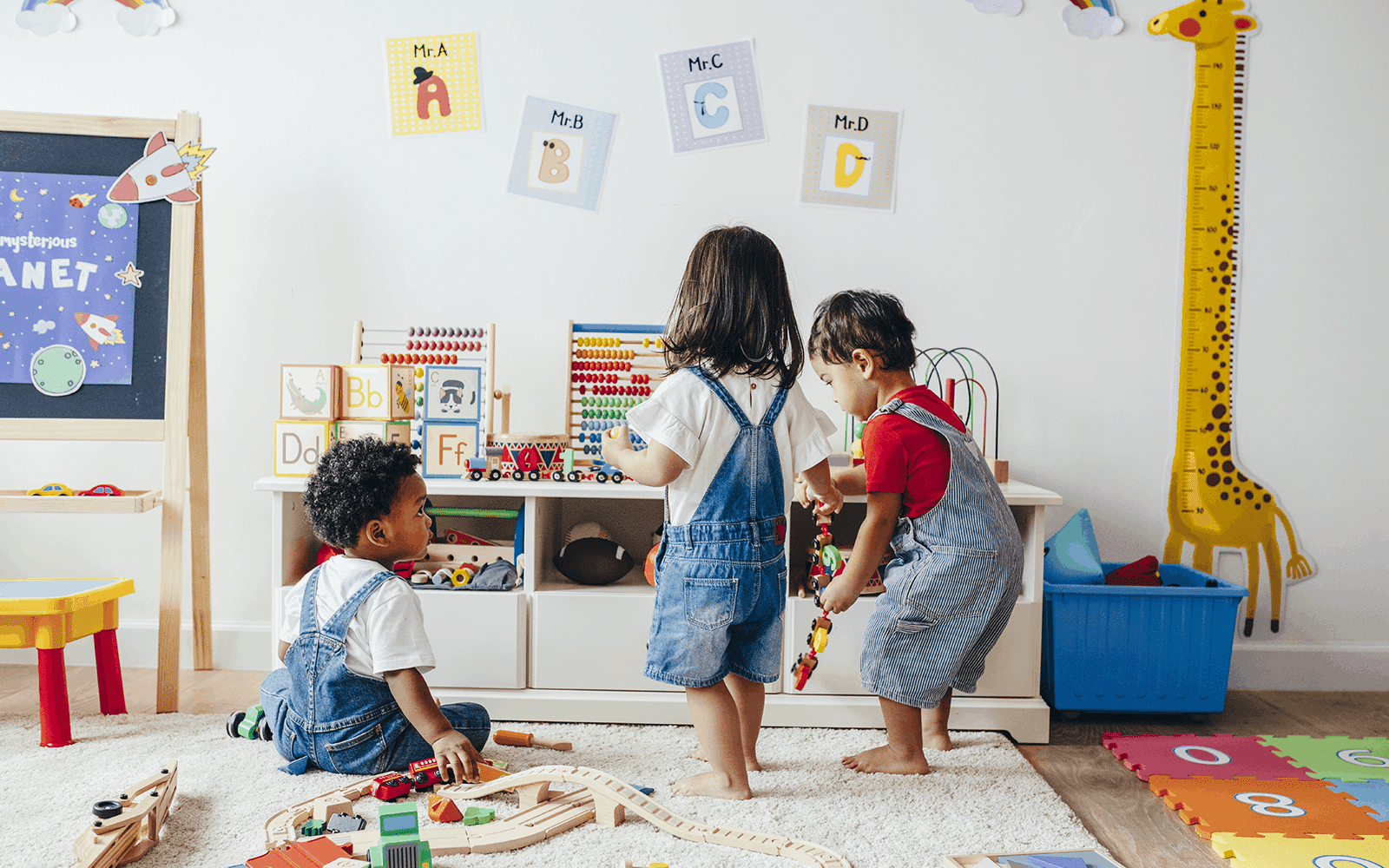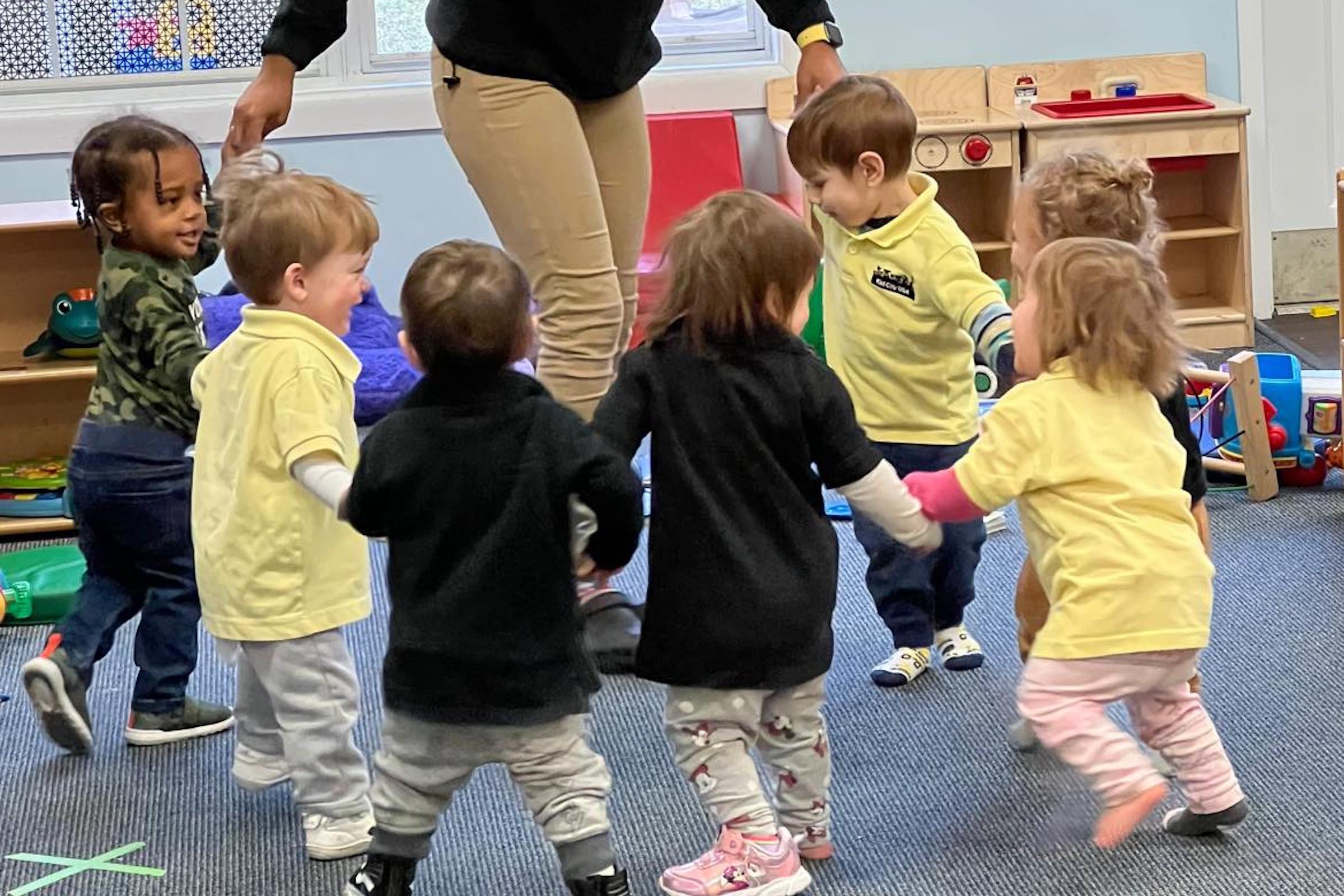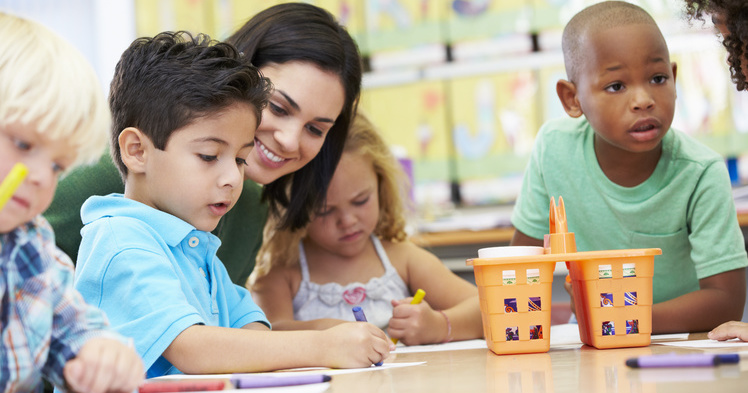How Childcare North York Supports Early Learning and Social Skills
Wiki Article
The Role of DAYCARE in Fostering Social Abilities and Very Early Learning
Childcare serves as a significant atmosphere for kids, helping with crucial social communications that promote early knowing. In this structured setup, youngsters engage with caregivers and peers, developing vital communication and cooperation abilities. As they browse play and different activities, they discover to resolve problems and build emotional knowledge. Comprehending the nuances of these interactions discloses the extensive impact day care has on a child's development, forming their future partnerships and academic preparedness. What details skills do kids obtain in this setup?The Value of Social Communication in Daycare
While many parents acknowledge the significance of very early childhood education, the duty of social interaction in day care is commonly underestimated. Childcare settings give kids with vital chances to engage with peers, promoting important social skills. Throughout these developmental years, youngsters learn to browse various social characteristics, such as sharing, teamwork, and problem resolution. Engaging with varied age and individualities enhances their capability to adjust to various environments and create empathy in the direction of others.
Structure Communication Skills Through Play
Play works as a powerful tool for children to develop essential interaction abilities in childcare settings. With numerous play tasks, youngsters engage in discussions, share their thoughts, and discover to pay attention to others. Parlor games, for instance, encourage them to use language in various contexts, advertising vocabulary development and understanding of social cues.
Storytelling throughout playtime enables children to communicate emotions and ideas, assisting them create narrative skills and confidence in their verbal expressions. In general, play not just acts as a satisfying activity but likewise as an important platform for establishing the interaction skills necessary for successful social communications in later life.
Encouraging Cooperation and Synergy
Teamwork and team effort are vital skills that kids can grow in daycare environments. Via various group activities, such as constructing jobs or collective games, youngsters learn to share obligations and job towards usual goals. These communications foster an understanding of the importance of paying attention to others, negotiating roles, and compromising when needed.In childcare setups, caretakers frequently produce chances for kids to take part in synergy by encouraging them to join team tasks. This not just aids kids establish social bonds yet also cultivates a feeling of belonging and neighborhood.
As they browse these participating experiences, children obtain useful insights right into the characteristics of dealing with peers. They discover to value diverse viewpoints and recognize that each member adds uniquely to the group effort. Inevitably, these early lessons in cooperation and team effort lay the groundwork for healthier connections and effective collaboration in future social and scholastic settings.
Structured Knowing Activities and Cognitive Growth
Structured understanding tasks play an indispensable function in fostering cognitive growth in young kids (Child Care Near Me). These tasks, which include problems, storytelling, and hands-on experiments, boost important thinking and analytical skills. In a daycare setup, organized learning encourages kids to engage with their peers, improving their capacity to procedure details and comprehend numerous concepts
With guided play and interactive tasks, kids create fundamental abilities such as numeracy and literacy. Activities centered around numbers can help children grasp mathematical principles, while storytelling improves language acquisition and understanding. Furthermore, organized knowing permits educators to evaluate developmental progression and dressmaker tasks to private knowing requirements.

Including a varied series of structured activities not only promotes cognitive development but likewise prepares youngsters for future scholastic success. By providing a well balanced atmosphere that fosters expedition and inquiry, daycare programs play a vital function fit the cognitive capacities of young students.
Cultivating Psychological Knowledge and Self-confidence
Psychological knowledge and confidence are important components of a kid's growth, matching the cognitive skills fostered with structured knowing activities. In daycare settings, children are supplied with chances to express like it their feelings and participate in social communications, which are vital for constructing emotional understanding. With guided play and team activities, children find out to determine their feelings, identify those of others, and establish compassion.In addition, communication with caretakers and peers aids to cultivate self-worth and strength. Positive support and motivation from grownups equip kids to take dangers and face difficulties, promoting a sense of accomplishment. As they browse social dynamics, kids develop confidence in their abilities to interact, work together, and settle disputes - Childcare North York. This nurturing environment enables the progressive growth of psychological intelligence, which is necessary for web link future interpersonal relationships and total health. As an outcome, day care plays a significant role in promoting both emotional intelligence and confidence in children
Regularly Asked Concerns
Just How Can Moms And Dads Pick the Right Childcare for Their Child?
Parents should take into consideration aspects such as area, staff qualifications, safety and security requirements, curriculum, and assesses from other moms and dads when selecting the ideal day care for their kid, guaranteeing it lines up with their kid's developmental demands and family worths.
What Age Is Ideal for Starting Daycare?

Just How Does Day care Influence Kid's Behavior in the house?
Day care frequently favorably influences children's actions in the house by improving social abilities, advertising self-reliance, and motivating psychological guideline (Child Care Near Me). Consequently, youngsters may exhibit enhanced interaction and teamwork, bring about even more harmonious household dynamicsExist Any Drawbacks to Daycare Attendance?
Yes, there are downsides to daycare attendance, consisting of potential separation stress and anxiety, exposure to illnesses, and inconsistent caregiving. These elements can impact a kid's emotional wellness and change in your home, affecting overall family members characteristics.Just How Can Moms And Dads Assistance Social Skills Learned at Day Care?
Moms and dads can sustain social skills learned at childcare by assisting in playdates, urging cooperative tasks, modeling favorable interactions, going over sensations, and reinforcing sharing and interaction at home, consequently enhancing their child's social advancement and confidence.Daycare offers as a considerable atmosphere for young youngsters, facilitating essential read more social interactions that advertise early discovering. Day care setups give children with invaluable opportunities to involve with peers, cultivating necessary social skills. Play serves as an effective tool for children to construct important interaction skills in childcare settings. In day care setups, youngsters are offered with chances to express their emotions and involve in social communications, which are vital for building emotional understanding. Childcare usually positively affects kids's behavior at home by enhancing social abilities, promoting independence, and motivating psychological regulation.
Report this wiki page